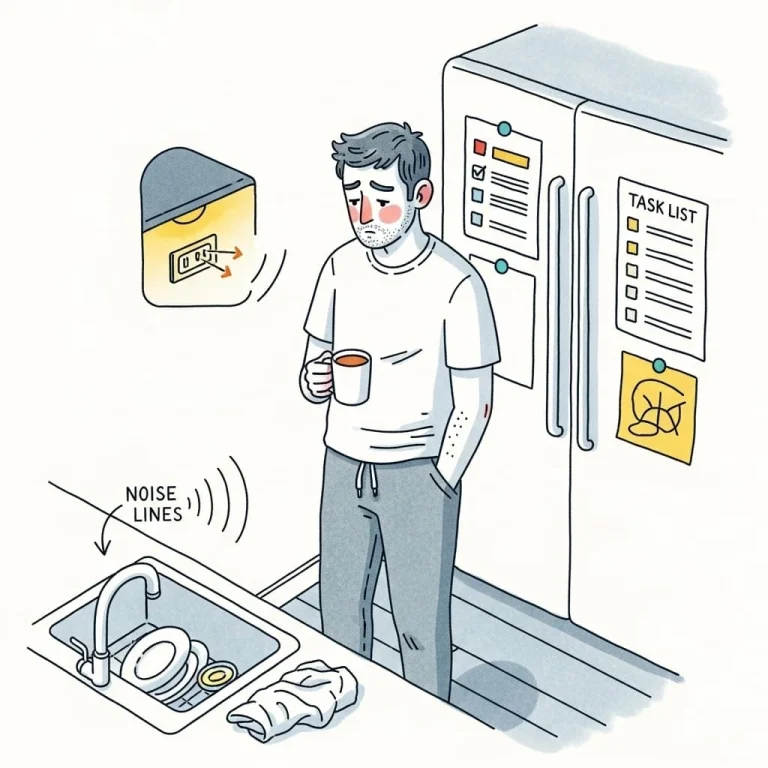Compassion Fatigue Meaning
Compassion fatigue describes emotional, physical and psychological distress, and people in caregiving roles are at a higher risk of experiencing compassion fatigue.
The term compassion fatigue is also known as a secondary traumatic stress disorder or a secondary stress reaction. It is linked to healthcare professionals, dementia family caregivers and therapists, although it can impact anyone. Often, this mental health challenge is mistaken for burnout, but burnout is only a part of compassion fatigue. Compassionate fatigue occurs suddenly, but burnout builds up over time.
At Unique Community Services, we strive to create a healthy and safe environment where people can express their feelings and be supported in their roles.
Importance of Early Recognition of Signs of Compassion Fatigue
Compassion fatigue is a prevalent challenge that sometimes goes unnoticed, but it has profound effects on people, especially those working in healthcare. Addressing compassion fatigue on time is essential to ensure the well-being of individuals and the quality of care they can provide. Both physical and emotional exhaustion characterises compassion fatigue, and it is linked to receiving other people’s trauma without having an adequate coping mechanism.
Noticing the first signs of compassion fatigue is the most important step towards combating the impacts. People experiencing compassion fatigue may exhibit symptoms like irritability, detachment from work, or a low ability to empathise with others as well as other mental health problems.
By acknowledging the signs, individuals can take all the necessary proactive measures and focus on improving their mental health. It’s important not to trivialise and dismiss compassion fatigue as it is a valid response to the high emotional demands that people receive when caring for others. Sometimes, counselling, cognitive behavioural therapy and other methods can help in the fight against this challenge.
Impact on Mental Health
The impact compassion fatigue has on people’s mental health is important as it can influence their daily lives. One of the biggest psychological impacts is depersonalisation, which refers to detachment from others and oneself.

People experiencing emotional exhaustion find it difficult to empathise and connect with others. Burnout is also a symptom of compassion fatigue which seriously impacts people’s mental health, leading to people feeling exhausted and unmotivated. The additional stress could lead to mental illness (mental ill-health) like anxiety or depression. Healthcare providers must practice self-compassion and receive support for their well-being to improve their overall quality of life.
Emotional Exhaustion
Emotional exhaustion is a state of emotional fatigue that increases people’s risk of developing burnout. The signs of emotional exhaustion vary from person to person, but they usually occur over a long period.
Emotional exhaustion affects people’s emotional and physical well-being, leading to more distress. Working towards reducing stress but also practising self-care is vital when it comes to lowering exhaustion. Making certain lifestyle changes, such as exercising, to help reduce the effects of the symptoms may be helpful.
Anxiety
If compassion fatigue is not managed properly, it can lead to other challenges such as anxiety and depression. Anxiety often co-occurs with burnout, people may feel tension, worry and edginess which can interfere with people’s ability to focus and perform daily tasks.
Decreased Empathy
Empathy is described as the capacity to place oneself in another person’s “shoes”, but it also represents how we express and respond to that emotion. Too much caring without having boundaries can lead to even greater emotional stress for family carers. Often, it is not one single factor that causes people to feel decreased empathy and an inability to connect with others, but it is a multitude of stressors and risk factors.
Impact on Physical Health
Compassion fatigue goes beyond impacting mental health alone. It can also cause difficulties that affect people’s physical health. Therefore, it is vital for healthcare providers, support workers or any other caregiving professionals to address all challenges related to their physical health caused by compassion fatigue.
Physical Exhaustion
Physical exhaustion can also be a result of compassion fatigue. Caregivers often work long hours without rest. This dedication usually takes a toll on people’s physical well-being and brings a constant lack of energy, tiredness and fatigue.
Physical exhaustion affects people’s daily functioning and poses other risks to overall health, including a weaker immune system, making people prone to infections and other illnesses. It also affects cognitive abilities, impacts motor skills, and reduces the ability to remain alert in dangerous situations.
Sleep Disturbances
Sleep disturbances often co-occur with compassion fatigue, and they can have a serious impact on people’s well-being and health status and can lead to:
- Difficulty staying asleep
- Difficulty with falling asleep
- Restless sleep
- Experiencing nightmares


Sleep disturbances can lead to various negative effects, such as the increased risk of accidents, mood disturbances and decreased concentration.
Muscle Tension
Muscle tension is also common with compassion fatigue, as it occurs due to constant stress and strain experienced by caregivers, leading to increased muscle tension and tightness. The tension can manifest as neck and shoulder pain, jaw pain, headcase and muscle stiffness. The physical toll of muscle tension can result in discomfort, difficulty performing daily tasks and decreased mobility.
Migraines
Migraines are another side effect associated with compassion fatigue. Being exposed to stress for a long time and constantly being in highly sensitive situations can trigger migraines and enhance existing migraine conditions. Intense headaches, nausea, sound and light sensitivity and visual disturbances characterise migraines. The physical discomfort migraines cause can impact carers’ ability to provide care effectively and negatively affect health.
How to Prevent Compassion Fatigue
Through effective self-care strategies, mental health carers can fight compassion fatigue and continue their primary focus of supporting people. Managing and ultimately overcoming compassion fatigue can be done through a few coping strategies. Self-care is one of the most effective, and some examples of self-care include:
- Exercising
- Work-life balance
- Engaging in fun activities
- Healthy diet
- Improved sleep
- Utilising relaxing techniques
- Recognise negative emotions and focus on regulating them
Receiving emotional support from colleagues is vital in managing compassion fatigue as well. It is essential and beneficial to have a place where healthcare professionals can share their emotions in a safe and supportive environment.
Additionally, early intervention is key in preventing compassion fatigue and seeking therapy from other mental health services is helpful for carers to learn how to process their emotions and receive guidance on managing the effects of compassion fatigue effectively.
Unique Community Services Prioritise Support Worker Well-being
At Unique Community Services, we strive to promote a healthy and supportive work environment where our clinicians can focus on their mental and physical well-being. We aim to maintain a positive work culture that values mental health so our team members can grow personally and professionally.
We understand that providing our clinicians with the right tools and a healthy environment can prevent compassion fatigue. We sincerely respect our clinician’s dedication and commitment to improving the lives of the people we serve.
Unique Community Services delivers 24/7 care across the UK, and you can find our offices in Manchester and Leeds.




